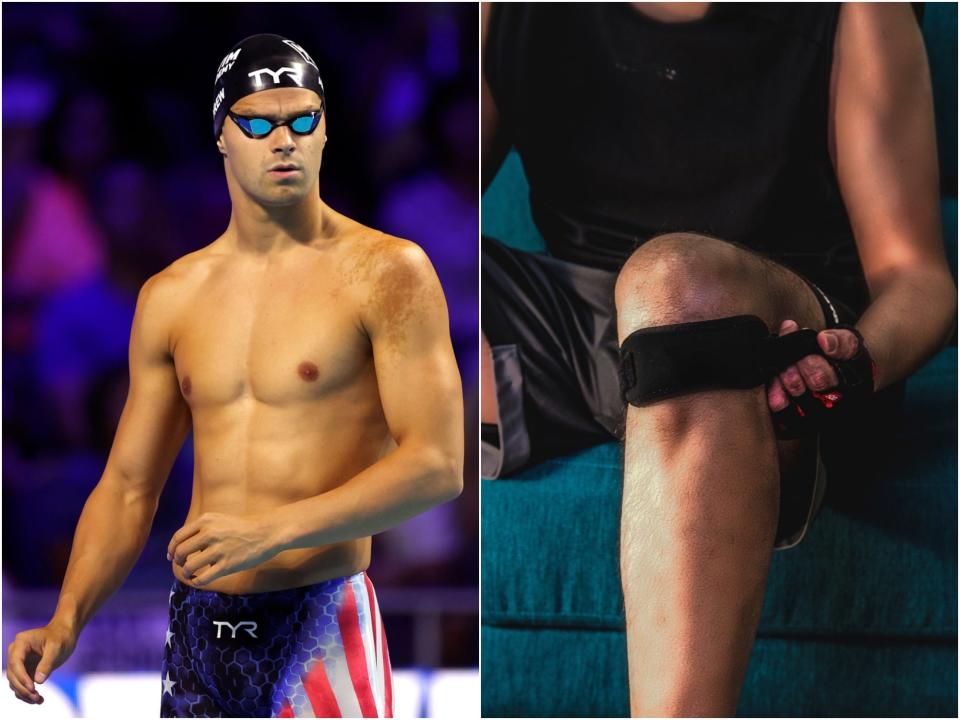Olympians are wrapping their arms and legs in blood flow-restricting bands to build muscle mass and avoid injury
- Oops!Something went wrong.Please try again later.
Blood flow restriction training is being used by Olympic athletes in the lead up to the games.
It involves strapping up the limbs to limit blood flow to the muscles.
The technique can help boost muscle size, endurance, and recovery.

Olympians are using blood flow restriction training as a muscle building technique to prepare for the Tokyo Olympics.
The technique involves wrapping up the limbs to limit blood flow to the muscles, Insider previously reported.
Not only is blood flow restriction designed to help build muscle without lifting very heavy weights, it can also be used to boost endurance and aid recovery.
The New York Times reported athletes like swimmer Michael Andrew, 22, and long distance runner Galen Rupp, 35, have both been using the method in the leadup to the games.
According to the Times, Andrew has been wearing "tourniquet-like bands" on his arms and legs in the Tokyo practice pool, and Rupp has been strapping up his legs.
Andrew said he swims with the blood flow restricted in his arms, and tries to match the times he swims normally.
"Obviously, it's very difficult," Andrew said in an interview reported by the Times.
"But you are simulating a sensation of real pain that tricks the body into regrowth."
He said he also uses the bands before racing and to aid with recovery.
Blood flow restriction training was invented by a man named Yoshiaki Sato in Japan, where it's known as KAATSU.
"It's very useful for training around an injury that doesn't allow for heavier loads to be used," personal trainer Harry Smith previously told The Independent.
"Blood-flow restriction training forces you to use much lighter loads than you usually would as the restricted venous return traps blood in the muscle, limiting its range of motion to an extent and causes a huge build-up of metabolites and lactic acid."
Smith said if you're uninjured and able to train normally, blood restriction is the best way to get results over time.
Read the original article on Insider

